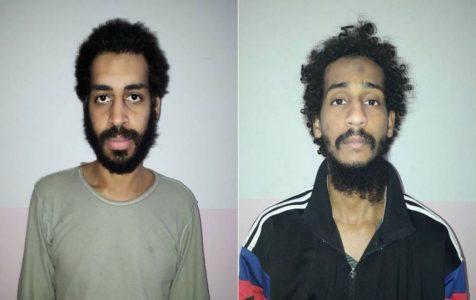
Britain would not block death penalty for ISIS terror suspects
Britain’s interior minister has indicated London would not object to Washington seeking the death penalty against two British Islamic State militants if they are extradited to the United States, the Daily Telegraph reported on Monday.
According to a leaked letter published in the newspaper from British Home Secretary Sajid Javid, Britain was prepared to waive its long-standing objection to executions in the case of captured fighters, Alexanda Kotey and El Shafee Elsheikh.
The two men are suspected of being two of four militants, dubbed the “Beatles” because of their English accents, who took part in the kidnap, torture and murder of Western hostages.
They were captured in Syria in January by a U.S.-backed Syrian force, and Britain and the United States have been in discussions about how and where they should face justice.
According to the Telegraph, Javid wrote to U.S. Attorney General Jeff Sessions saying Britain was not intending to request that the two men be sent to the United Kingdom, saying a successful prosecution in the United States was more likely.
Furthermore, he said Britain would not insist on guarantees the men would not be executed.
“I am of the view that there are strong reasons for not requiring a death penalty assurance in this specific case, so no such assurances will be sought,” the letter said.
“As you are aware, it is the long held position of the UK to seek death penalty assurances, and our decision in this case does not reflect a change in our policy on assistance in US death penalty cases generally, nor the UK Government’s stance on the global abolition of the death penalty.”
A Home Office spokesman said the government would not comment on leaked documents.
“We continue to engage with the U.S. Government on this issue, as we do on a range of national security issues and in the context of our joint determination to tackle international terrorism and combat violent extremism,” the spokesman said in a statement.
Source: Reuters





